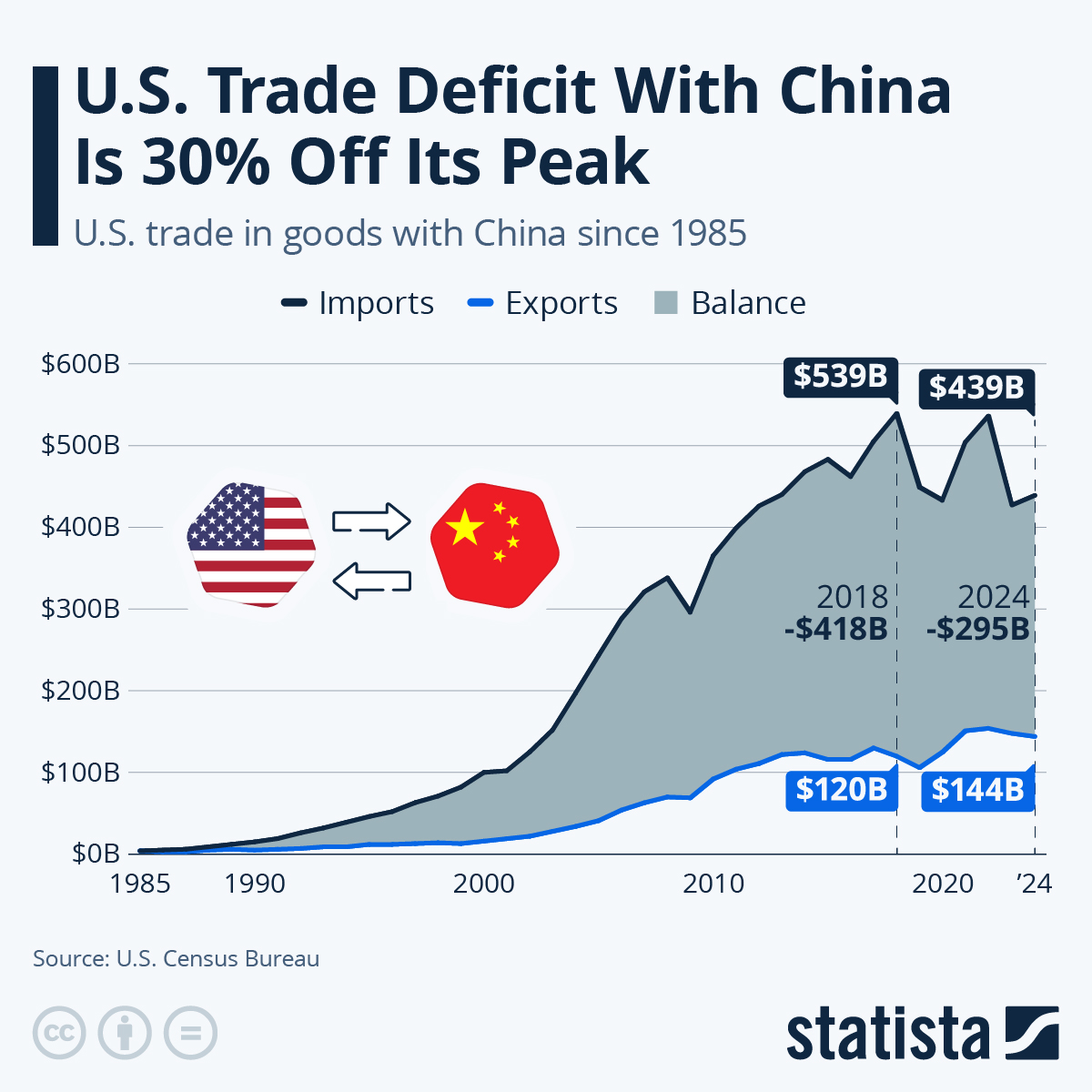Trump's Trade War: ABI Research Analyzes The Lasting Impact On Tech Tariffs

Table of Contents
Increased Costs and Reduced Competitiveness for Tech Companies
The tech tariffs directly increased the cost of imported tech components and finished goods. This had a multi-faceted impact on the tech industry:
- Price Increases for Consumers: Tariffs were passed onto consumers, resulting in higher prices for smartphones, computers, and other tech products. This dampened consumer demand in some sectors and altered purchasing habits.
- Impact on Global Competitiveness: US tech companies faced a significant disadvantage against international rivals who sourced components from countries not subject to the tariffs. This reduced their global competitiveness, particularly in price-sensitive markets.
- Affected Tech Sectors: The semiconductor industry, a cornerstone of modern technology, was heavily impacted, alongside smartphone manufacturers and other companies relying on imported parts. ABI Research's data points to a marked shift in market share favoring companies based in countries less affected by the tariffs.
- Market Share Shifts: ABI Research's analysis reveals significant shifts in market share, with some US companies losing ground to competitors in regions less impacted by the Trump trade war and its resulting tech tariffs.
Supply Chain Disruptions and Restructuring
The Trump trade war's tech tariffs caused major disruptions to global tech supply chains, forcing companies to adapt and restructure their operations.
- Relocation and Supplier Diversification: Many companies responded by relocating manufacturing to countries with lower tariff burdens or by diversifying their supplier base to reduce reliance on single sources in affected regions.
- Rise of Nearshoring and Reshoring: "Nearshoring" (relocating production to nearby countries) and "reshoring" (bringing manufacturing back to the home country) became increasingly popular strategies to mitigate future tariff risks and enhance supply chain resilience.
- Geographical Shift in Tech Manufacturing: ABI Research's data showcases a clear geographical shift in tech manufacturing, with production moving away from China and towards other Asian countries, as well as regions like Mexico and Southeast Asia.
- Long-Term Implications: The long-term implications include increased supply chain complexity, higher transportation costs, and potential vulnerabilities to disruptions in different parts of the world.
The Impact on Innovation and Technological Advancement
The increased costs associated with the tech tariffs had a potential chilling effect on innovation within the tech sector.
- Stifled Investment in New Technologies: The higher costs of production could discourage investment in research and development (R&D) for new technologies, potentially slowing down technological progress.
- Reduced Cross-Border Collaboration: Trade restrictions hindered collaboration and knowledge sharing between researchers and companies across borders, impacting the speed of innovation.
- Slower Technological Progress: The overall effect of these constraints could be a slower pace of technological advancement compared to what might have been achieved in a more open and integrated global market.
Geopolitical Implications and the Shifting Global Tech Landscape
The tech tariffs had far-reaching geopolitical implications, significantly reshaping the global tech landscape.
- US-China Relations: The trade war exacerbated existing tensions between the US and China, intensifying the rivalry between these two major tech powers.
- New Trade Alliances: The trade war prompted the formation of new trade alliances and partnerships among countries seeking to reduce their reliance on the US and China.
- Technological Decoupling: The Trump administration's policies accelerated the trend towards technological decoupling between the US and China, leading to the development of separate technological ecosystems.
- Evolving Global Power Dynamics: ABI Research's analysis highlights how the tech tariffs contributed to the evolving global power dynamics in the tech sector, with power shifting towards companies and nations less affected by the trade war.
Conclusion
ABI Research's analysis reveals that the Trump administration's tech tariffs have had a profound and lasting impact on the global tech industry. Increased costs, supply chain disruptions, potential dampening of innovation, and a reshaped geopolitical landscape are just some of the long-term consequences. The effects extend beyond simple price increases, influencing the strategic decisions of companies, the structure of global supply chains, and the dynamics of international relations. To gain a deeper understanding of this complex issue and its ongoing ramifications, we strongly encourage you to explore ABI Research's full report on the lasting impact of the Trump trade war on tech tariffs. Visit the ABI Research website to learn more about their comprehensive trade war analysis and other valuable insights into the technology market.

Featured Posts
-
 Rarest Uk Wildlife Threatened By Increasing Wildfire Risk
May 13, 2025
Rarest Uk Wildlife Threatened By Increasing Wildfire Risk
May 13, 2025 -
 Angel Has Fallen Comparing It To Olympus Has Fallen And London Has Fallen
May 13, 2025
Angel Has Fallen Comparing It To Olympus Has Fallen And London Has Fallen
May 13, 2025 -
 Novy Atlas Romskych Komunit Kedy A Ako Sa Budu Zbierat Data
May 13, 2025
Novy Atlas Romskych Komunit Kedy A Ako Sa Budu Zbierat Data
May 13, 2025 -
 The Kyle Tucker Report Fueling Frustration Among Cubs Fans
May 13, 2025
The Kyle Tucker Report Fueling Frustration Among Cubs Fans
May 13, 2025 -
 Atalanta Dibungkam Fiorentina Gol Tunggal Kean Putuskan Pertandingan
May 13, 2025
Atalanta Dibungkam Fiorentina Gol Tunggal Kean Putuskan Pertandingan
May 13, 2025
